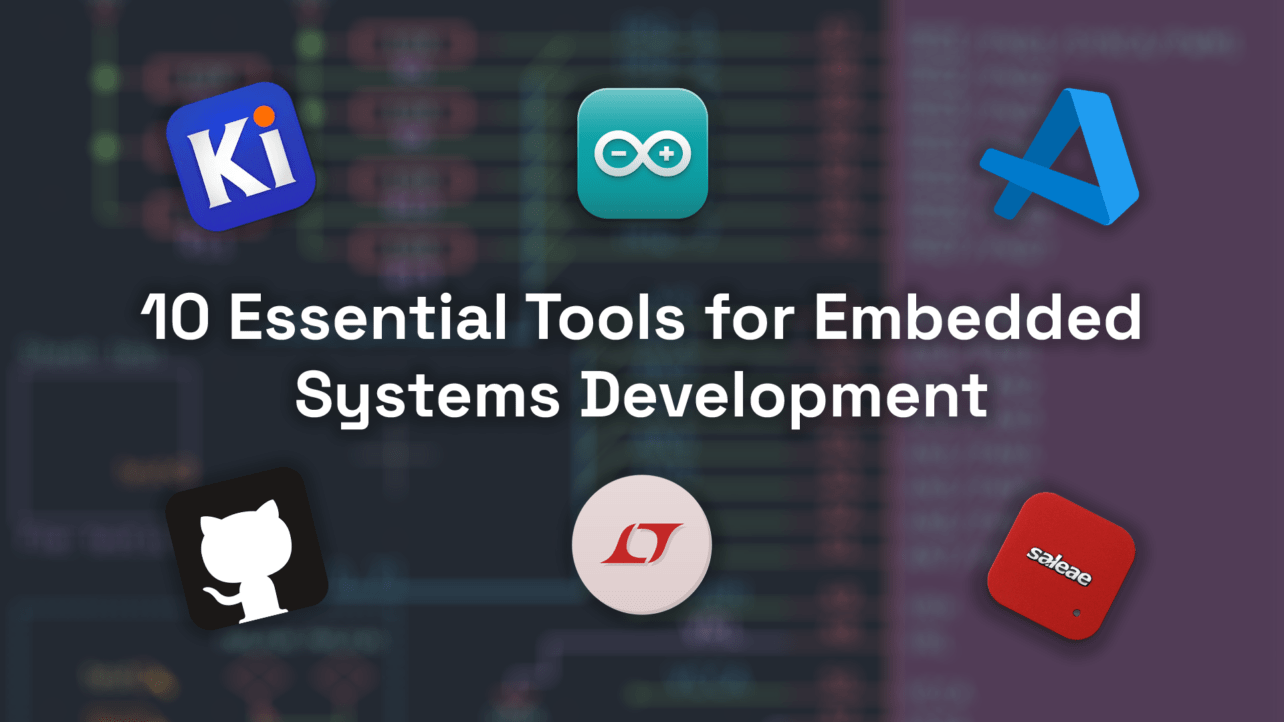As a mechatronics engineering student with hands-on experience in embedded systems through courses, internships, and industry professional conversations, I’ve compiled this comprehensive guide. This article aims to bridge the gap between academic learning and industrial applications in embedded systems development.
Integrated Development Environment (IDE)
An efficient IDE is crucial for embedded development. Here’s a progression from beginner to professional tools:
- Arduino IDE: Excellent for beginners
- PlatformIO: Ideal for more complex projects
- Visual Studio Code with PlatformIO: According to AspenCore’s “2023 Embedded Systems State of the Union,” 72% of professional embedded developers prefer this combination.
Hardware Debugger
Debugging hardware is a critical skill. Here are two popular options:
- ST-Link V2: Cost-effective for STM32-based projects, popular among students
- SEGGER J-Link: Recommended by industry professionals for its extensive capabilities and broad compatibility
Logic Analyzer
For analyzing digital signals and protocols:
- Saleae Logic 8: Excellent educational tool, balancing affordability and features.
According to a 2022 EE Times poll, 65% of professional embedded engineers prefer these for their usability and performance.
Oscilloscope
Essential for analog signal analysis:
- Keysight InfiniiVision DSOX1204G: My go-to tool with 70 MHz bandwidth and advanced triggering capabilities.
During my internship, I learned that Keysight oscilloscopes are considered the industry standard for troubleshooting complex timing issues.
RTOS Simulator
Understanding real-time operating systems is crucial:
- FreeRTOS simulator: Excellent learning tool (Learn more about RTOS in my previous article)
- Percepio Tracealyzer: Used in professional environments for optimizing real-time performance
Static Code Analysis Tool
Improving code quality is vital:
- Cppcheck: Free, open-source tool for catching potential bugs in C/C++ projects
- SonarQube: More comprehensive solution used in industry
According to a senior developer I met in a workshop, teams using advanced static analysis tools see up to a 40% decrease in post-release faults.
Version Control System
Essential for project management and collaboration:
- Git with GitHub: Ideal for students (Free private repositories available with GitHub Student Developer Pack)
- GitLab: Popular in professional settings for its advanced CI/CD features and self-hosting options
Cross-Compiler
For ARM-based microcontroller projects:
- GNU Arm Embedded Toolchain: Widely used in both academic and professional settings.
During my internship, I learned that many companies choose this toolchain for its reliability and extensive support from the ARM developer community.
PCB Design Software
For designing printed circuit boards:
- KiCad: Free, open-source tool with a growing community (See my previous article on mechanical keyboards for an example of KiCad usage)
- Altium Designer: Preferred by many professionals for its advanced features in complex designs
Circuit Simulator
For testing circuits before physical implementation:
- LTspice: Excellent for students and hobbyists
- ANSYS Circuit: Used in professional settings for complex simulations, especially in power electronics and RF design
The tools discussed here are just the beginning of your embedded systems and mechatronics journey. As the field continues to evolve, staying informed about the latest tools and best practices is crucial.
Remember, the success of your project can be significantly influenced by your choice of tools. This guide aims to help you make informed decisions along your embedded development path.


2 comments
I like this weblog very much, Its a really nice spot to read and get information.
Helpful information. Fortunate me I found your
site by chance, and I am stunned why this coincidence did not came about in advance!